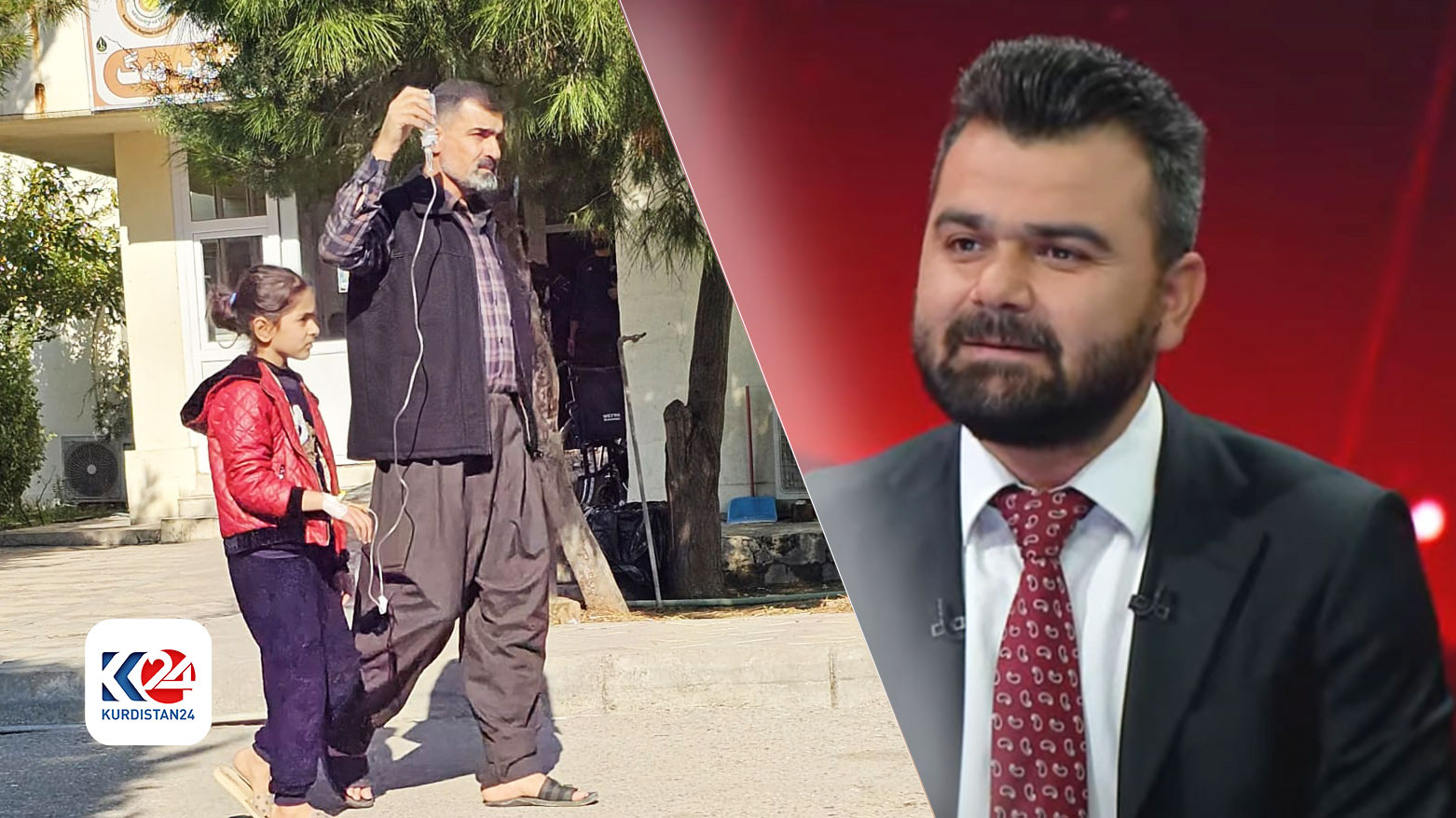‘Investigations of contaminated water in Sharazur district over, cause identified’, says Health Ministry
Ministry spokesperson also addressed concerns about misinformation, stating that "some media outlets have published inaccurate statistics about the number of affected residents, causing unnecessary anxiety among the population."

ERBIL (Kurdistan 24) – The Kurdistan Regional Government's Ministry of Health announced that contaminated household water has caused a widespread outbreak of gastrointestinal illness affecting more than 2,000 residents in Sharazur (New Halabja).
Dr. Sarkar Surchi, spokesperson for the Kurdistan Region's Ministry of Health, told Kurdistan24 on Saturday that "from Wednesday, Nov. 6, until noon Friday, Nov. 8, approximately 2,200 people in Sharazur have been affected by vomiting and diarrhea."
The spokesperson assured that none of the reported cases were life-threatening, and no fatalities have been recorded. "Most patients were discharged after receiving medical treatment within one to two hours, while some didn't require hospitalization at all," Surchi added.
He noted that since Friday, "the number of new cases has significantly decreased."
Surchi also addressed concerns about misinformation, stating that "some media outlets have published inaccurate statistics about the number of affected residents, causing unnecessary anxiety among the population."
According to the ministry's investigation committee, the primary cause of the outbreak was identified as contaminated household water tanks. The Health Ministry, in coordination with Sulaimani's General Directorate of Health, has supplied necessary medications and medical supplies to Sharazur hospitals to manage the outbreak.
The ministry has advised residents of Sharazur and surrounding areas to avoid using household tank water until the situation is fully controlled, recommending that if usage is necessary, the water should be boiled first.
Sharazur, also known as New Halabja, is located in Kurdistan Region's Sulaimani province.
Water safety has been an ongoing concern in various parts of the Kurdistan Region, with authorities working to improve water infrastructure and treatment systems.
This incident highlights the importance of maintaining proper water sanitation standards and the need for regular monitoring of water supply systems in residential areas.